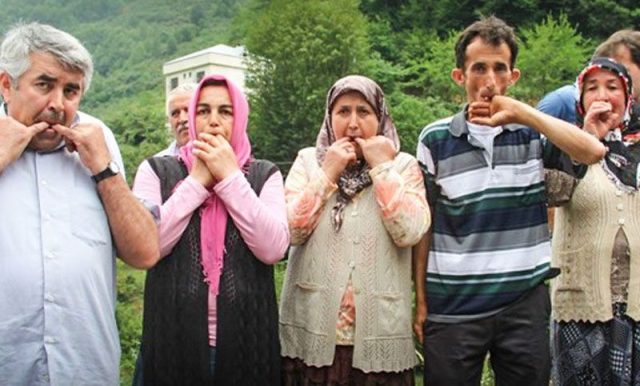In an era where caller tunes and verbal intimation seems to have set the conventional means of communication, the tiny hamlet of Kongthong in Meghalaya uses different tunes to address each other.
This unique form of whistled identity lent to each individual by their mothers travels much better than cellular connectivity or loud-voiced calls.

While some of us are still under the bone-chilling horror creaks after having watched “A Quiet Place”, there are no insectoid creatures stalking anything that makes a noise here.
If silence was the key to survival in the one and a half hour flick, survival also depends on silence in this small village which is situated 65 kilometers from Shillong.
The Age-Old Whistling Ritual
With trekking being the only source of access, the isolated geography has resulted in an amazing system of calling names through tunes or whistles. Every time a baby is born, the mother makes the child used to a specific tune or “sur” similar to a bird-call.

This specific lullaby or “Jingwei lawbei” transforms into a unique identity for the child for life. Although the mother has a final say in selecting the “sur”, the children are free to choose a tune for themselves if they don’t like the tunes decided by their mothers.
The tune dies out with the death of the person making sure that no one repeats the same tune for the residents living in the village.
You Can Also Read:“Read This Article To Find Out How We At BuzzFeed Once Again Made An Issue Out Of Nothing”
The Practice Of Cooing To Each Other Actually Makes Sense
Primitive as it may be sound, this age-old tradition actually makes a lot more sense. The sound of names may get diffused while traversing through hills and dales but the tunes echo back, traveling far and wide reaching the concerned person in no time.

Calling one another by the “surs” proves useful during hunting expeditions as these sounds can alert the fellow members without piquing the curiosity of another tribal group after the same prey.
The warbling whistles also form a part of the courting ritual where an unmarried young man belts out a tune to appease the bride of his choice. Khasi folklores speak of narratives where the villagers used whistles to outwit the goons by letting out a distress call through their distinctive lullaby.
Never Falling Short Of Tunes And Mother Nature
Rooted in their unusual beliefs, the villagers consider calling out names as a sign of ill omen fearing that the unseen spirits of the forests make a person fall ill the instance they pick up someone’s name being sought out.
A similar tradition can be observed in a remote village of Turkey’s Black Sea Coast where the local folk communicates through piercing whistles resembling “bird language“.

Like any other village in Meghalaya, the main source of livelihood is agriculture, mainly growing plants from which broomsticks are derived.
The astonishing fact that remains is the ability of the villagers to remember these tunes without any written record. The spectacular practice still stands one with nature where every child born or tune composed has a counterpart in the exotic world of plants and birds.
Sources: Better India, The Telegraph, The North-East Today
Image Credits: Google Images
More Recommendations:
Crazy Predictions If Ekta Kapoor Makes Indian Game Of Thrones




































